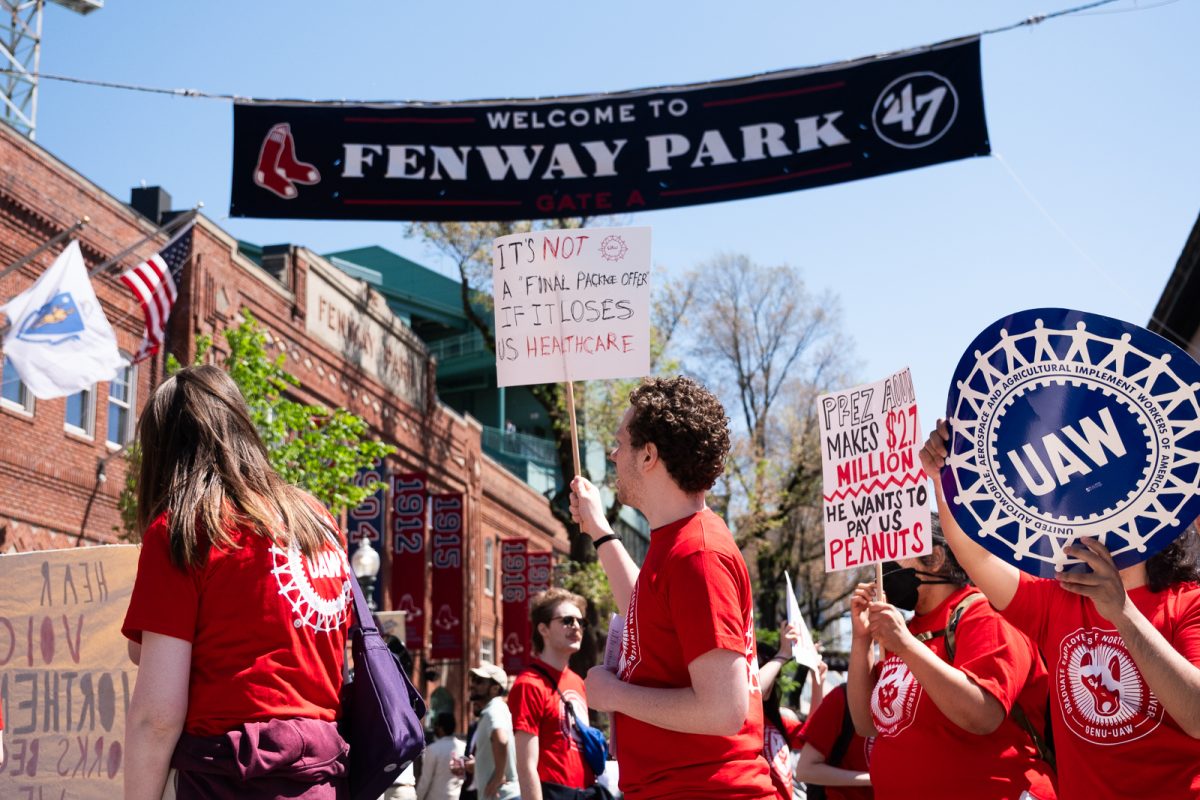By Peter Shanley
On the heels of the 2000 presidential election, which was decided by a mere 535 votes in Florida, President George W. Bush and Massachusetts Sen. John F. Kerry have their campaigns registering voters across the country, especially at college campuses.
A New York Times’ article last Wednesday revealed this year’s election is drawing more interest in 18 to 20-year-olds since 1972, when President Richard Nixon battled against George McGovern, and at another time when issues concerning war and social changes dominated the political landscape.
And with the war in Iraq last week tumbling further into chaos with another round of suicide bombings and kidnappings, students have a central issue directly affecting them.
“I think the war in Iraq has impacted college students 18-24 because that is the majority of people fighting,” said Annabelle Guerra, the president of Northeastern’s College Republicans.
Heidi Buchanan, the president of Northeastern’s College Democrats also said she feels Iraq will play a primary role on who students choose to be president because of the threat of a draft, but also said she believes women’s issues and the cost of a college education will factor into their decision.
“If Bush is re-elected,” Buchanan said, “he will appoint a [United States] Supreme Court justice that wants to appeal Roe v. Wade. I think [college tuition] is another issue that, actually, a lot of people don’t know about it and the people who do know about it, they actually care.”
One criticism of college students has been that they are under informed and rely to heavily on mediums such as The Daily Show with John Stewart for information about the candidates.
“Sadly, I think a lot of them get it [news] from shows like the Daily Show,” said Buchanan. “I don’t think they get a lot of news from credible sources.”
Even though the issues may resonate with young voters, the same cannot be said of the candidate themselves with a generation gap in place.
Both parties claim to have the advantage with the young voters, but the results could be heading to the same fate of 2000 elections, when they voted evenly between Bush and former Vice President Al Gore.
Guerra said she believes the candidates themselves will not be deciding factors, but rather the issues.
“I feel young voters will vote with the issues most closest to them,” Guerra said. “Choose the candidate with issues closely to them. Who they are going to vote for, I’m not sure.”
The College Republicans and the College Democrats held a drive earlier this year during Freshman Week in which they registered 40 to 50 students in their efforts to involve more student voters.
And Students for Kerry, a subcommittee of College Democrats, held a meeting last Wednesday in which a record-high 46 students attended. The committee is garnering support for Kerry and will canvass New Hampshire, a battleground state, on Sept. 26 and Oct. 16, 23 and 30.
“Basically I signed up because I want to beat Bush, ” said James Sargent, a freshman political science major and a member of Students for Kerry. “I’m hoping to do a bit more than simply working with the Kerry campaign. I want to work to elect Democrats on the local and national level.”








